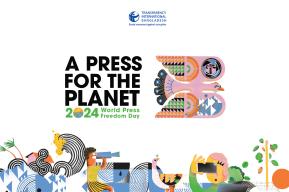News
Students at Lord Howe Island in Australia join UNESCO in global eDNA research

The day commenced with classroom activities, where students discussed Lord Howe’s globally outstanding biodiversity and threats, and learnt about the basic principles of extracting genetic material from the ocean, using innovative environmental DNA (or eDNA) sampling techniques.
Later that day, 3 groups of students applied their knowledge at sea, filtering the DNA from water samples taken at Lagoon Beach in the World Heritage area. The students used eDNA equipment and followed citizen science sampling protocols provided by UNESCO. The eDNA sampling expedition was overseen by staff from the Lord Howe Island Marine Park and school teachers . Additional water samples were collected from both inshore and pelagic sites near established long-term monitoring locations across the World Heritage area to compliment the sampling completed by the students.
It is inspiring to see how the UNESCO eDNA initiative allows young students to assist in a simple but meaningful way with establishing important baselines that can help identify changes in reef biodiversity and health in the future.
Environmental DNA is an innovative scientific method to monitor and evaluate ocean biodiversity without removing organisms from their environment. Just one litre of water may contain genetic material from hundreds of species and help determine the area’s biodiversity richness.
The UNESCO environmental DNA Expedition initiative will roll out across 25 marine World Heritage sites between September 2022 and April 2023. The eDNA data will provide a one-off snapshot of biodiversity richness across marine World Heritage sites, particularly for fish species.
By combining the resulting biodiversity data with Intergovernmental Panel on Climate Change (IPCC) heat scenario projections, the initiative aims to provide a first glimpse of potential geographic and distribution shifts of fish species as a result of climate change which can inform conservation decision-making.
The eDNA Expeditions’ data will be made publicly available through the UNESCO Ocean Biodiversity Information System, the world’s largest open science marine species database. Final results are expected to be available in Spring 2024.
The UNESCO eDNA initiative is a collaboration between the Intergovernmental Oceanographic Commission and the World Heritage Centre. It is made possible with the support of the Government of Flanders (Kingdom of Belgium) and implemented in the context of the United Nations Decade of Ocean Science for Sustainable Development (2021-2030).
About Lord Howe Island Group (Australia)
Lord Howe Island Group in Australia is home to the world’s most southern coral reef and hosts a unique biota of plants and animals. It's globally outstanding scenic ocean, and islands are important breeding grounds for colonies of seabirds, including some of the world’s rarest birds, and a natural habitat for threatened species. The island group was added to the UNESCO World Heritage List in 1982.






